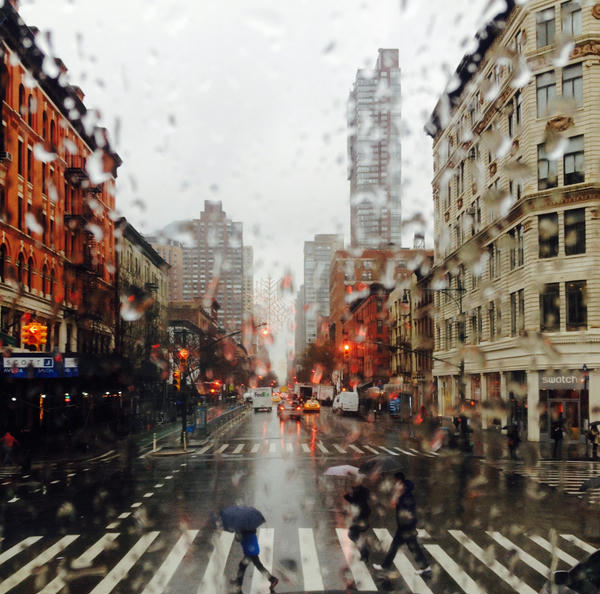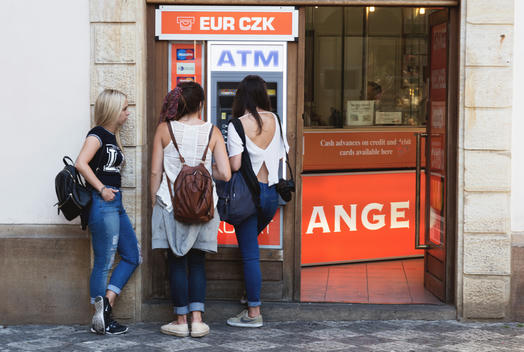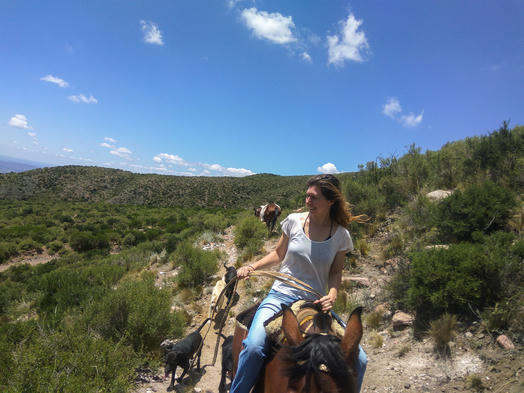Our guest author and urbanist Oleksandra Bienert spent almost two weeks in Jordan. What left a long-lasting impression upon her is the mixture of Jordan's different cultures, the vibrant and bustling life of the metropolis, and its hectic traffic
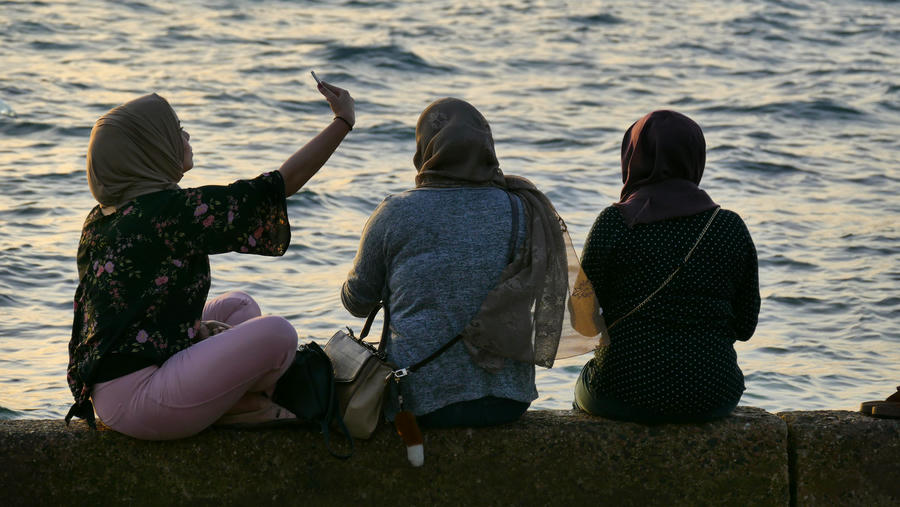
December 2018
Amman has a clear blue sky. The city is composed of low-rise white houses, they are often painted with bright murals. A man in the window of one of the houses roasts and sells different nuts. In the next house, someone makes a flatbread. It smells like strong coffee. A wonderful city.
Walking in the streets of Amman is sheer pleasure until you have to cross a road. Often there are no transitions or the transitions are not always in a convenient place. Cars move along the streets of Amman without stopping. I find myself standing at the edge of the road. I keep waiting for some time until it occurs to me to talk to a girl standing right next to me. She also wants to get to the other side. We decide to cross together, we run through the endless rows of moving cars almost embracing each other, and then part, wishing each other a good day. It is clear to me that she's used to this kind of adventures, running through the road, she has a confident air. Women in Amman are almost always elegant. Some of them have their heads covered and some not, they wear lipstick and carry small bags over their shoulders. They seem to me to be an embodiment of some mysterious pride.
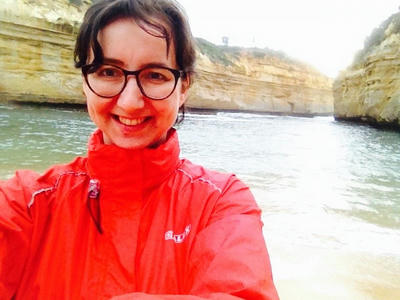
After passing two more intersections, I decide to call an Uber. My driver’s name is Fadi, he is 32 years old. He is handsome, thin, with an expressive nose and black hair. During the trip, we talk a lot. He finds out that I am Ukrainian-born, and picks the topic of Ukraine's collaboration with the Nazis during World War II. I persuade him that the absolute majority of Ukrainians (and my grandfather among them) were fighting in the Red Army against the Germans. Fadi is a Jordan-born Palestinian and hence, he is familiar with war from the first-hand experience. Part of his family still lives in a Palestinian village where he is not allowed to travel. People like him have Jordanian citizenship, but they cannot enter Palestine. Even though he has never seen his family village, he dreams about it and misses it a lot. In this village, he owns a house, it is located on the shore of a beautiful lake, close to the mountains, however, he will never even get a glimpse of it.
Fadi is the ninth child in his family. All his brothers and sisters went to university, and his wife is an English teacher. He proudly shows me a photo of two babies - he recently got twins. Himself, he would very much like to become a historian. But he has no time to study, he says - since he needs to feed his family. He is a talented photographer - he takes excellent pictures of birds that are similar to the ones of National Geographic. His choice of profession is restricted as is his access to his native land. As a Palestinian, Fadi is not permitted to work in Jordanian administration. What is available to him is a job at the university, in business or driving an Uber. Fadi's car breaks down in front of a big intersection, I pay, I wish him good luck, wish him to become a historian, and leave his car. I ask him what his biggest wish is.
- Peace, - he answers. - Only peace.

Many of the 9.5 million people living in Jordan have a fate similar to Fadi's. 800,000 refugees came to this country during the Six-Day War in Israel in 1967. About half of the population of Jordan has Palestinian roots. In recent years, Jordan received (according to various estimations) from 650,000 to one and a half million refugees from Syria, and earlier - several hundred thousand people fled the war in Iraq. Here many people know the war first-hand indeed. In addition to Palestinians and Iraqis, Jordan population consists of Circassians, Chechens, Turkmens, Roma, Azerbaijanis, Bedouins. I asked my Jordanian friends what the main difference between Jordan and its neighbouring countries in the Middle East is. They told me that the main difference is the peaceful coexistence of different ethnic groups within the same territory. The country of stone deserts, the Jordan River, biblical stories of Herod and the Roman Emperors legacy - despite the turbulent history it feels calm. In addition to being calm, it is very hospitable, travellers are treated with unprecedented graciousness. The Jordans were so warm and hospitable to me that upon returning to my hometown Berlin, I experienced some kind of "cultural shock" from the cooler air of my countrymen.
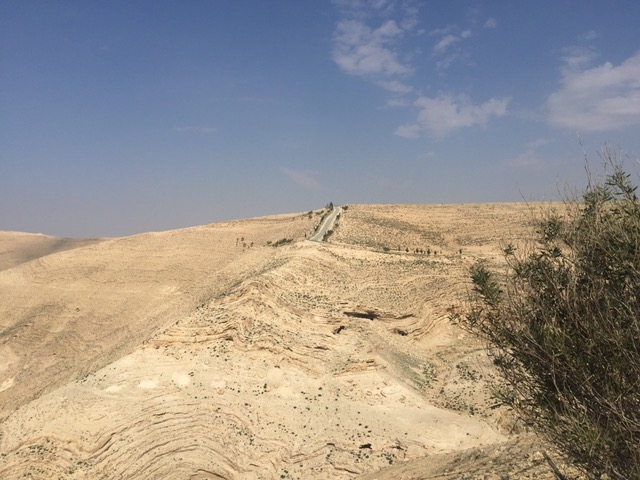

Finally, I reach my destination: a concert of the Syrian cult band Salatin al Tarab at the Abdul Hameed Shoman Foundation. This charity was opened in 1978 as part of Arab Bank, founded by Palestinian Abdul Hameed Shoman in Jerusalem in 1930. It includes a library, a cultural forum, a research institute on literature and science. Music concerts and film screenings are held here as well. Entrance to the concert is free of charge, and the hall is full. The band sings traditional Arabic music. Sometimes, it is thought-provoking, sometimes, it is cheerfully, sometimes, it has a sadness provoking goosebumps. Still, joy remains dominant over sadness, and the tune is life-affirming.
In the second row, a thick older man throws up his hands emotionally and exclaims something to support the band. In the left row, a woman gets up and starts dancing. The whole audience claps. Here as well, songs against the war are sung.
After the concert, we find ourselves in a wonderful cafe-bookhouse "Book @ Café". It is located in the city centre with a terrace on the ground floor. Here, the smell of hookah intertwines with a lively chat about books, Palestinian posters for independence, sweaters and T-shirts with prints of John Lennon (another sign for peace!. The bulletin board of the book shop promotes empowerment workshops for young people, Arabic literature and Spanish courses, salsa courses and the Karama human rights film festival. Cultural life in Amman appears to be in full swing.


In the book shop, I finally manage to find a book by a Jordanian author everyone keeps recommending to me: "The Bride of Amman", it is a novel by gender activist Fadi Zaghmout. Zaghmout writes about four girls and one young man in Amman. Girls combat stereotypical ideas about the role of women, and homophobia makes a young man marry not out of love. People who recommended this book to me usually added "We ourselves were surprised that this book was written by a Jordanian author. We are used to the fact that the local intellectuals are but English-spoken." It is the legacy of the colonial history of Jordan: in 1922-1946, the country was under British administration. Aside from good books, Book @ Café serves an excellent dry red wine «Saint George», it comes from the city of Madaba, in the south of Amman.
I leave the book cafe - the evening is warm, and you can see many stars. I call an Uber, but the car is not arriving for a long time. I ask one of the nearby taxi drivers whether he is my Uber driver, he replies
– I will soon start a real revolution because of this Uber!
We talk for a while, I get into his taxi and we agree that he will wait with his revolution. I watch a star shoot across the horizon. Within a second, I make a wish - let us live in peace: peace for Fadi, the taxi driver, Ukraine, Syria, the Palestinians, and all of us. Please. And let it be soon.
